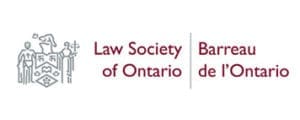The Justice did not agree with the Crown that the informal demand made satisfies the requirement. The circumstances have to be looked at as a whole. The threshold conduct leading to the grounds for the refusal charge happened after the formal but incorrect demand was read. At the very least, this creates confusion. Though the wording of the demands are similar, the grounds, legal obligations and implications of the two demands are different.
Synopsis of Events
The York Regional Police were dispatched to McDonalds located in the Town of Richmond Hill for an impaired driving complaint.
Upon arrival at the above location, York Regional Police located the vehicle outside the drive-thru window, as described by civilian witness. Police approached the vehicle and PC LITTLE asked the lone male driver to put his window down, however the male opened the drivers side door and proceeded to exit the motor vehicle. Male identified with a valid Ontario driver’s licence with photo ID that bared true likeness to the driver as AC.
As AC exited the vehicle, he moved very slowly, and when standing still wavered back and forth. The smell of alcohol could be detected coming from AC’s mouth, and was very slow in responding to officers when questioned.
At 0419 hours, PC RIAHI read AC a breathalyzer demand in order to perform a roadside breath test. PC LITTLE and PC PETTENUZZO both stood by as AC repeatedly asked officers “what is good for me to do”, asking officers multiple times to explain what the outcome would be if he did the breath test or not; however when asked multiple times over a ten minute span to complete the breathalyzer test, Andrew refused to give an answer.
Additionally, over the ten minutes, instructions and outcomes of completing or refusing the road side test were explained more than half a dozen times, in different manners in order to have AC understand the breathalyzer demand by all officers.
Due to the uncooperative behaviour and refusal; AC was arrested at 0429 hours and a contract tow request was placed.
AC was put in the rear drivers side of PC RIAHTI’s cruiser where he was cautioned and read his rights to counsel. AC was later released at 0450 hours on a form 9 with a first appearance and fingerprint date in the Town of Newmarket. AC was also informed that his licence will be suspended for 90 days and vehicle impounded for 7 days.
Why the Evidence Should be Excluded
In the course of these requests, Mr. Calder was told by the officers to comply with the request for a breath sample a number of times and in a number of different ways.
On at least one occasion, in the course of exchanges on this topic, the officers said words to the effect of, “You can provide a breath sample, or you can decline, the choice is yours; or if not you will be charged with refuse“, that’s not an exact quote.
That is the import of what was said a number of times. It was added at various points that a refuse charge would potentially result in the same penalty as impaired driving.
The defence argues that posing the question “as a choice” in this way sends an inaccurate message by suggesting that there is a choice to comply or not. I disagree with this characterisation.
It is clear that the demand was not permissive and was combined with a sanction for failing to comply.
An issue arises in this case as a result of PC Riahi reading a demand from his memo book during the course of the repeated demands made. After making the demand using informal words on the first occasion, PC Riahi read a demand from his memo book. This was after interacting with AC for a period of time and other officers getting involved.
In error, he read the approved instrument demand and not the approved screening demand.
The standard wording of the approved instrument demand was read as follows:
I demand that you provide suitable samples of your breath into an approved instrument to enable an analysis to be made to determine the concentration if any of alcohol in your body and that you accompany me for this purpose.”
That was the import of the words used. The demand read was a section 254(3) approved instrument demand, not a section 254(2) (b) approved screening device demand.
This was done through inadvertence without any intent to mislead AC. The formal, but mistaken demand, was read after a number of requests were made without using the formal wording.
The issue arising from this error is whether this mistake results in the demand not being lawful.A finding that the demand was not lawful would make the refusal to take the Approved screening test benign.
It is relevant to note that the Crown does not rely on the presumption of identity in this case nor is there a Charter remedy sought.
The defendant submits that he should be found not guilty because the Crown has not proven that a lawful demand was made, an essential element of the offence.
The Crown submits that although the approved instrument demand was read, the words must be considered in context and the surrounding circumstances must be considered. The Crown submits, as a part of this argument, that the initial informal demand was lawful and satisfied the requirement.
The Judge agreed with the defence that reading the wrong demand is significant. One. need only comply if the demand is lawful. The nature of the demand is crucial. In this case the wrong demand was read.
This was not a case of the demand being confusing due to choice of words or there being some uncertainty about the exact words used, as in R. v. Persaud, [2017] Od No. 6092 Ontario Court of Justice. There, Justine Kenkel found that there were inconsistencies in the testimony of the arresting officer about the words used in the demand but found that the correct demand was read at the roadside,
The Justice did not agree with the Crown that the informal demand made satisfies the requirement. The circumstances have to be looked at as a whole. The threshold conduct leading to the grounds for the refusal charge happened after the formal but incorrect demand was read. At the very least, this creates confusion. Though the wording of the demands are similar, the grounds, legal obligations and implications of the two demands are different.
The subtleties of the differences may not be known to the defendant, but they are significant and exist independent of the specific knowledge of the defendant.
Result of Trial
The Honorable Justice found that the breathalyzer demand was not lawful and that therefore the charge of refuse breath test was not an offence in this situation. The charge was dismissed.
 Criminal Defence Lawyer Nicholas Charitsis
Criminal Defence Lawyer Nicholas CharitsisNicholas Charitsis is a Toronto criminal lawyer focused on criminal defence in the Toronto and area courts.
Send Me an Email
[formidable id=3]




Comments are closed.